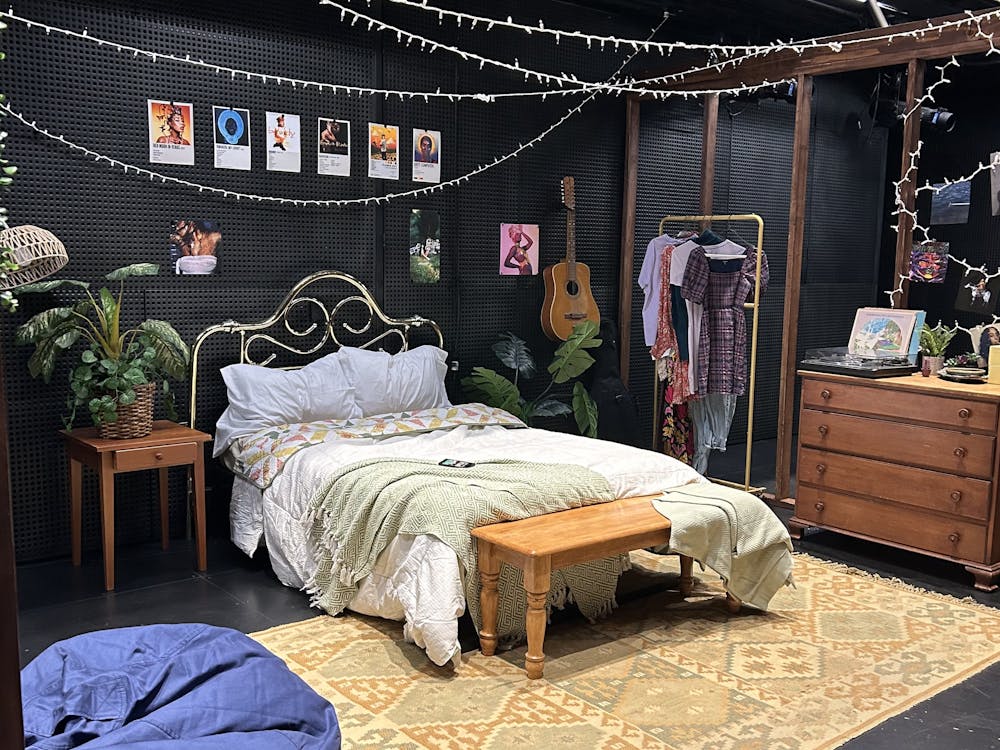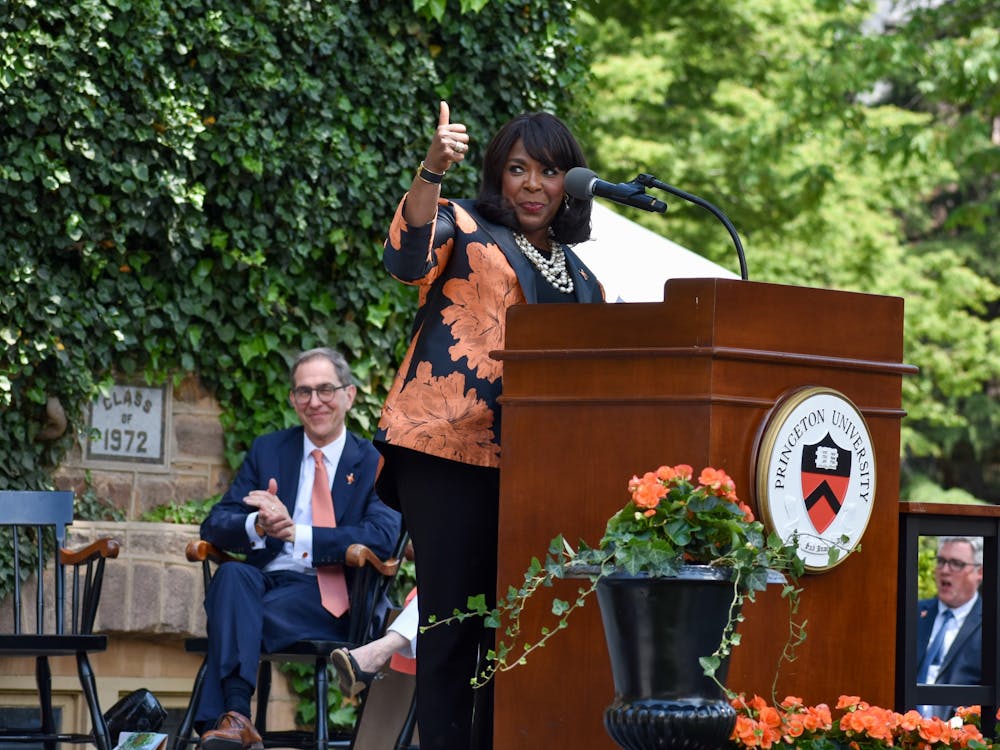When “Blurred Lines” was released in 2013, I found myself in the uncomfortable position of being both captivated by a catchy beat and turned off by lyrics that seemed to condone sexual assault, categorizing consent as a “blurred line.”
Ironically, my mom was probably Robin Thicke’s biggest fan. (Her other favorite songs include “My Humps” and “Fergalicious.”) When I half-heartedly objected to her love of the song, she’d protest by saying, “But it’s so good!”
The campus debate over backing a musician whose lyrics are satiated with overt sexism has prompted me to reflect on the dilemma I found myself in a few years ago. Does being a feminist preclude me from jamming to songs with lyrics like “I hate these blurred lines/I know you want it”?
If so, I am in deep trouble. I have playlists upon playlists teeming with songs boasting questionable lyrics. Andeven artists not from this decade are culpable for promoting a sexist message.
In The Rolling Stones’ “Under My Thumb,” Mick Jagger squeals, “The squirmin’ dog who’s just had her day/Under my thumb … The way she talks when she’s spoken to/Down to me, the change has come.” The Doors’ “You’re Lost Little Girl” is blatantly patronizing. Even The Beatles’ “Run For Your Life” describes their intent to assault a woman who defies them — “You better run for your life if you can, little girl/Hide your head in the sand little girl/Catch you with another man/That’s the end ah little girl.”
What about these songs keeps me listening? Perhaps this speaks to some women-hating impulse I secretly harbor. Or maybe the answer is more simple — inured to sexist music, I have learned to tune out what I don’t want to hear. New York Magazine author Ann Friedman describesthis instinct, writing, “there is a huge swath of music that I enjoy by actively disengaging with its lyrics and their political ramifications.”
Being outraged is exhausting, and, seeing as we are constantly barraged by misogynistic messages, sometimes it’s easier to simply ignore them so we can enjoy a catchy song. However, something about this approach feels lazy, insufficient, and I’m hesitant to justify consuming sexism simply because sexism exists everywhere.
So the question remains: In order to be a “real” feminist do I have to purge myself of these offensive songs?
For some reason, I don’t think so. Perhaps this is simply a justification because I don’t want to have to stop listening to my favorite songs. But perhaps there is a constructive way to consume sexist music, as contradictory and incongruous as that might sound.
Ellen Willis, The New Yorker’s first popular music critic, sheds light on how one might do this. Willis wrote about rock and roll when it was rampant with misogyny, but instead of feeling oppressed and subjugated by offensive lyrics, she found herself empowered by the music. She wrote, “Music that boldly and aggressively laid out what the singer wanted, loved, hated — as good rock ’n’ roll did — challenged me to do the same, and so, even when the content was antiwoman, antisexual, in a sense antihuman, the form encouraged my struggle for liberation.”
Willis found consuming sexist music did not discourage her political and social ideologies. In fact, in some way the music provoked her to muster her own voice in response, just as boldly and aggressively.
Others agree that women-hating music does not by definition lead listeners to hate women. Bustle writer Kristen Sollee debunks the myth that listening to sexist music makes individuals sexist through some sort of osmosis-like process, going as far as saying that individuals can take ownership of music by imposing their own messages on lyrics. She writes, “Once a piece of music is released into the world, it’s my belief that each listener can imbue a work with his or her own meaning, too. That doesn’t erase the original impetus for a song, but it can change it, if only for the individual listener.” As Sollee points out, it is worth noting that we are not fed our opinions through song lyrics, but rather project onto song lyrics our preexisting opinions.

Additionally, Sollee speaks to the unproductive nature of censorship, writing, “squashing artistic and creative expression through censorship laws or restrictions will not make violence against women disappear, nor will it foster a free-thinking society.”
Ultimately, I appreciate that we live in a place where we question and remain critically aware of the music we listen to. I applaud the individuals that have spearheaded a movement that has prompted us to consider song lyrics and rape culture.
But, like Sollee, I believe that censorship rarely begets change. Prohibiting Big Sean from performing at Lawnparties isn’t going to stop him from producing music and isn’t going to stop a sexist culture from partaking and consuming his music. Refusing individuals a platform in which to present differing and offensive views doesn’t end these opinions. Rather, it just conceals them from our privileged community. Certainly, these beliefs can still flourish elsewhere.
Listening to music mindfully does not necessarily implicate us as participants in rape culture; I would go as far as saying that in consciously consuming offensive music we are extended and pushed to see what we usually get to ignore and perhaps provoked to confront our own inner inconsistencies. Some part of me is confident we can listen to sexist lyrics, push back and in doing so even solidify our commitment to equality.
Julia Case-Levine is a freshman from New York, N.Y. She can be reached at juliacc@princeton.edu.








